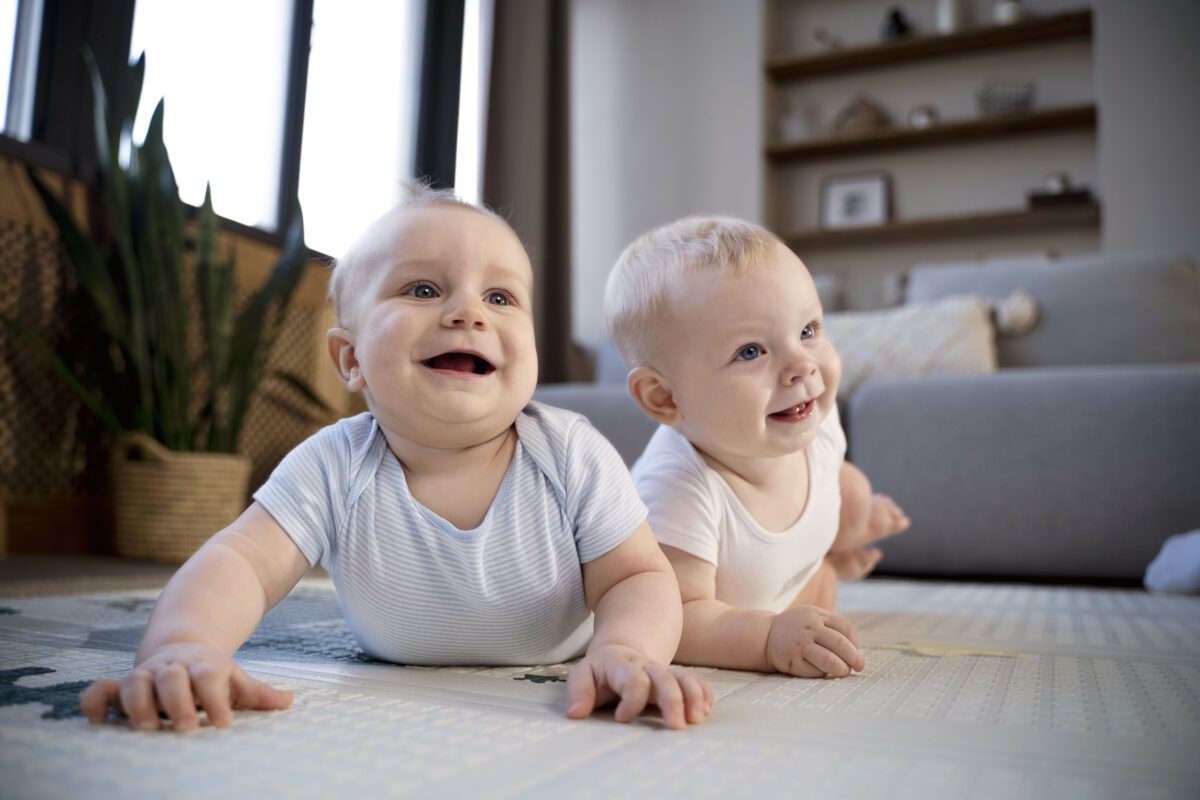
Birth Order: does it determine your personality or is it a myth?
We often hear how the middle child has it the worst, the youngest out of three is known to be spoiled, and the first born is treated as the golden child. If there’s only one child, that child may experience loneliness. If there’s only two children, a rivalry may erupt between both children. However, what happens when there’s more than three children? Does child order actually determine personality? Can you prevent your child from feeling ostracized based on their birth order? Wonder where you stand? Do you think your place in line has compromised your personality? Read more to find out!

Alfred Adler on Birth Order
The founding father of the concept of birth order is Alfred Adler. Alder formulated theories of personality to help therapists better understand a person due to their surrounding social environments. Adler also believed that character traits are formed due to underlying developmental issues, and of course, birth order happens to be one of those things.
What is Birth Order?
Birth order is exactly what it means (also referenced as child order). It is the order in which you are born. It’s as simple as that!
However, to psychologists, child order doesn’t only mean that. To some psychologists, (even simple people as yourselves who are reading this right now) child order plays a significant role in determining what someone’s personality will be like, or if someone is already an adult, birth order can be used to explain why someone is the way they are today.
A child will often use this to try and make sense of their roles and where they stand in the family and in life in general. The concept of child order is also beneficial to those who seek therapy, and to therapists themselves. A therapist will look at a persons family dynamic and can potentially attribute personality traits to their birth order depending on the severity of what is happening at home, or how its been affecting their cognitive skills and everyday life interactions with themselves and others.

Birth Orders and Personality Traits
Alfred Adler identified five child order positions. The positions Alder discussed were being the only child, first born, second child out of two, middle child out of three, and the youngest out of however many present in the family.
Other positions that a child can experience are twins, being adopted and being a “ghost child”.
Only child
An only child experiences similar traits to that of a first born. They both have ambition and drive. However, when those begin to branch off in different directions, the unique personality traits you will find in an only child are:
- Trouble sharing and cooperating in relationships
- Pampered and spoiled
- Finds themselves relating more to adults than other children
- Center of attention/self centered. With this, if this attention is compromised, the child will often see this as being “unfair.” This can potentially lead to severe narcissism.
- May become emotionally dependent on one or both parents
- Self critical
Only children are also known to thrive on logic, unreceptive of any sort of criticisms, and are really close with their parents. Adler also makes an additional statement that “only children” have a lot of difficulties with independent activities, and essentially will become useless later in life.
Birth Order: First Born Child/Oldest Child
Similarly to that of an only child, first children are also used to being the center of attention as infants. This is seen across the board for the eldest children because they are the first born to the parents, and are highly celebrated and praised by the family. The personality traits you can see in the first born/oldest child are:
- Achievement oriented/more academic than their other siblings
- Controlling
- More likely to follow rules better
- When a second child is born they may feel neglected, unloved, and jealous
- Has a general sense of responsibility
- Will play as a mentor for their younger siblings. Through this, older siblings will also learn how to become caretakers.
- Aims to please
- Motivated and determined
- Perfectionists
- Has more control of their emotional expressions
If a first born is born into a competitive family, and a second child is born, the first child will be likely to experience dethronement. Dethronement can cause maladaptive behaviors to form because the first borns will try and regain the attention they have lost from their parents. Dethronement can also stir up feelings of anger and frustration.
Birth Order: Second Born Child/Middle Child of Three
You are considered the second born if you are the second child out of two. When another child is born into the family, you become the middle child.
Second born children don’t necessarily receive all the attention that a first child would. The attention is now split between the two children. The second born is thrown into a role in which they have to compete for the love and affection from the parents. Second born children are most likely to have these personality traits:
- Tries to outdo everyone
- Discovers first borns limitations that can lead to further talent development that the first born doesn’t have
- If first child is successful, may not feel confident in their own abilities and talents
- Less concerned with goals and rules
- More affectionate
- Competition can turn into rivalry
- May become rebellious
When a third brother or sister is born, the second child is now the middle child. This is not to get confused with the middle child of a large family. There is a significant difference in those who are middle children to a larger family, than those who are middle children to that of three. The middle children of larger families receive less attention, and normally cooperates to get what they want. They also experience less competition with their older and younger siblings.
A middle child within a family of three, often feels sandwiched between their older and younger siblings. They also develop a “poor me” attitude when a third child is born. It is similar to how the first born feels when the second child was born, because they feel that all the attention is being robbed from them. Middle children of three usually have these personality traits:
- Feel that they don’t have a place in the family
- Often feels that life is unfair
- Doesn’t have the same rights or privileges as older and youngest siblings
- Adaptable
- Feels unloved and left out
Middle children also experience what you would call “Middle Child Syndrome“. “Middle Child Syndrome” is perhaps one of the most concrete ways to see how birth order can affect personalities depending on the family dynamic and it is 100% preventable. When the middle child of three experiences this “syndrome”, they often express feeling invisible, and having many disadvantage since they can’t get away with the same things that their older or younger siblings can. While first-born children are often praised for their accomplishments and the baby of the family is being spoiled, middle children feel like they don’t have anything special to claim as their own. Some studies also state that the middle children are prone to depression and anxiety symptoms.
You can counteract “Middle Child Syndrome” by doing all you can to make sure that your child feels important in the family, instilling self worth. Remembering to make sure that their thoughts and opinions are heard. Lastly, and most importantly – spending time with each of your children individually so you can learn about each of their interests and their needs.
There are two exceptions to “Middle Child Syndrome”, and that is gender and if the middle child has a disability. If your middle child is a different gender than the older and younger siblings, the “Middle Child Syndrome” does not typically affect them at all. The reasoning behind this is that when children are of a different gender, they are treated almost like a firstborn, because they have many different characteristics and activities, which will be “firsts” for a family. The same happens with a child that has a disability, most of the characteristics even developmental ones, are going to be first therefore the syndrome won’t be possible.
Birth Order: Youngest Child
Referred to as the “baby” in the family, younger children often have a better sense of independence, and life direction. Youngest children relate more to first borns and only children because they experience being heavily spoiled. They also tend to be very selfish, and dependent because they are always taken care of. Youngest children display these types of character traits:
- Often allies with the oldest child against the middle
- Confident
- Behaves as if they are the only child
- Overtakes older siblings
- Sometimes feels inferior/feels that people don’t take them seriously
- Frequently spoiled

Birth Order: Twins, Adopted Children & “Ghost Children”
These are other circumstances that birth order may seem a little tricky to pinpoint or understand.
For twins, one is usually deemed as the oldest, active, and stronger. The one that is treated as such may take on a leadership role. However, both are prone to identity issues because parents will treat their twins as one person instead of two separate units.
For adopted children “Parents may be so thankful to have a child that they spoil him. They may try to compensate for the loss of his biological parents”- Alderian Overview of Birth Order Characteristics developed by Henry T. Stein Ph.D
So, the characteristics that the adopted child may develop are that they will become very spoiled, very demanding, and may even begin to idealize or resent their biological parents.
As for, “Ghost Children” – A “ghost child” is one who is born after the death of the first born. It is said that there is a ghost of the first child in front of new born, thus the reason the mother becomes very overprotective. For the child’s characteristics, the Alderian Overview of Birth Order Characteristics also mentions that the “ghost child” will protest feeling that he/she is “being compared to to an idealized memory.” The child might rebel, and exploit his mother’s over concern for his/her well being.
Is birth order a Myth?
Many people refute that birth order has anything to do with personality. There are a lot of factors that aren’t taken into consideration when trying to see if birth order really determines personality. Environmental surroundings, social surroundings, and family dynamics are something to take into consideration when determining why someone is the way they are.
Some families with an only child, two children, three children, or ten children may not see any of the personality traits described come forth in their children. What is more likely is that birth order is not the only variable to determine your personality. Personality is a complex variable that is developed thanks to the different relationships among many others aspects of life.
Pavel Mischenko, trained therapist, explains how siblings and birth order can determine important aspects from negotiating to other personality, with examples from famous people. Watch below.
What are your thoughts on birth order being a factor in understanding personality? Do you believe it does? Do you think it’s completely a myth, or do you believe to some extent child order has an affect on personality? Maybe it depends?
References:
Child Development Institute. (n.d.). Birth order.
Murphy, L.J. (2012) The impact of birth order on romantic relationships.
Stein, H.T. (n.d.). Alderian overview of birth order characteristics.
Stevens, M.C. (n.d.). Birth order personality traits.
Topness, E.S. (2014). Alder’s birth order theory.














